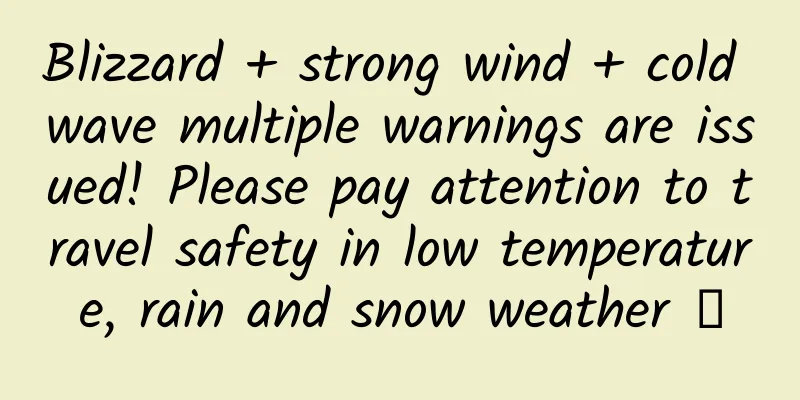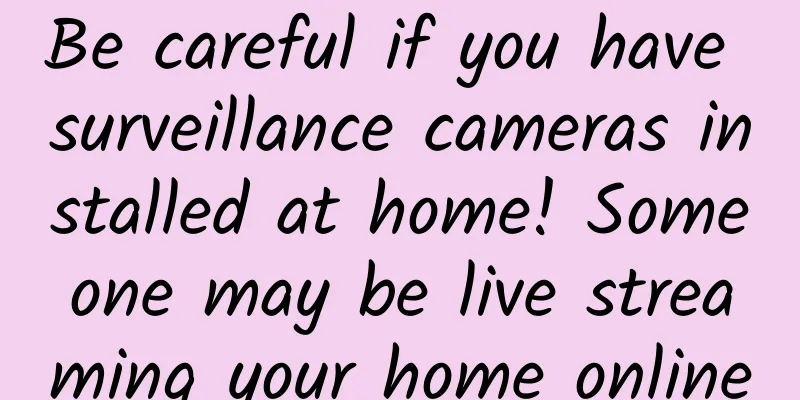Blizzard + strong wind + cold wave multiple warnings are issued! Please pay attention to travel safety in low temperature, rain and snow weather →

|
At 06:00 on March 2, the Central Meteorological Observatory continued to issue a yellow warning for heavy snow , a yellow warning for cold waves , and a blue warning for strong winds. It is expected that from 08:00 on March 2 to 08:00 on March 3, there will be heavy snow in parts of the Hetao region of Inner Mongolia, northeastern Gansu, eastern Ningxia, northwestern Shaanxi, southern Hebei, central and northern Shandong and eastern Henan, etc. Among them, there will be heavy snow in parts of the Hetao region of Inner Mongolia, eastern Ningxia, northwestern Shaanxi, central and northern Shandong, etc. The new snow depth in some of the above-mentioned areas will be 4 to 8 cm, and locally it may reach more than 10 cm. Source: Central Meteorological Observatory Affected by the cold wave, it is expected that from 08:00 on March 2 to 20:00 on March 4, the temperature in central and eastern my country will drop by 6-10℃ from north to south. Among them, the southern part of North China and most areas to the south will drop by 12-16℃, and some areas will drop by more than 18℃. On the morning of the 4th, the minimum temperature of 0℃ will be pushed south to the area from Jianghan to Yanhuai. In addition, the eastern part of the Qinghai-Tibet Plateau will drop by 6-10℃. Source: Central Meteorological Observatory It is predicted that from 08:00 on March 2 to 08:00 on March 3, there will be 4~6 degree wind and gusts of 7~8 degree in southern North China, Huanghuai, northern and western Jianghuai, Jianghan, eastern Yunnan, central and northern Tibet, southern Qinghai, southern Xinjiang and other places; there will be strong winds of 7~8 degree and gusts of 9 degree in Bohai Sea, Bohai Strait and most areas of the Yellow Sea. Source: Central Meteorological Observatory 01 This is a guide to driving safety in cold rain and snow Please keep it↓ 03 Low temperature, rain and snow weather, these key groups please pay attention to their health Experts said that there are three key groups of people who need special protection, including sensitive groups, such as the elderly, infants, pregnant women, etc.; people with underlying diseases and mobility difficulties, such as cardiovascular disease, chronic respiratory disease, diabetes and kidney disease patients, etc.; specific occupational groups, such as drivers, couriers, deliverymen and other outdoor workers. Experts recommend that sensitive people and patients with underlying diseases avoid prolonged exposure to low temperatures and maintain contact with relatives, friends and neighbors; children should add or remove clothing as appropriate during outdoor activities, and outdoor workers should wear warm and waterproof clothing to protect parts of the body that are prone to frostbite; the public should use indoor heating facilities correctly and provide adequate ventilation to prevent fires and carbon monoxide poisoning; take anti-slip measures when going out, drive safely and avoid sleeping on the streets while drunk; patients with underlying diseases should take medications regularly as prescribed by their doctors to ensure adequate stocks of commonly used medicines. 03 Things to note when traveling in windy weather 1. Avoid the “narrow channel effect” When walking or riding a bike, avoid walking in narrow passages between high-rise buildings, because narrow passages will form a "narrow tube effect", and the wind force will increase in the passage, thus posing certain dangers to pedestrians. 2. Be careful of falling objects Billboards, old trees, falling objects from high altitudes, etc. may fall and break in windy weather, posing a danger to pedestrians. When parking, it is best to park away from large trees, billboards, tall buildings, etc. 3. Drive carefully Drivers' visual and auditory visibility is reduced on windy days, so they should concentrate when driving, pay close attention to the movements of pedestrians, and roll up the windows as tight as possible to prevent sand and dust from flying into the cab and affecting driving. 4. Try to avoid riding bicycles In windy weather, riding with or against the wind may cause you to be blown down by the wind and cause physical injury. At the same time, you should always look carefully and not rush when riding or crossing the road. Comprehensive sources: China Meteorological Administration, Ministry of Emergency Management, Xinhua News Agency, People's Daily Online, etc. Note: The cover image is a copyrighted image. Reprinting it may cause copyright disputes. |
<<: A fox is not a raccoon, and an alligator is not a crocodile? How did the ancients name animals?
Recommend
What does it mean when publishing Tik Tok works and being restricted? Under what circumstances will the traffic of Tik Tok works be restricted?
Some friends have opened Douyin stores on the Dou...
Baiyun WeChat ordering mini program development, how much does it cost to develop a food ordering mini program?
Nowadays, many offline businesses are trying out ...
Where has the coronavirus gone? Will it disappear? Experts respond
Recently, the question of "where has the new...
How to recommend good products on Douyin? What are the advantages?
Everyone knows about Douyin now. Many celebrities...
Rejecting the middle-aged greasy Toyota's new Asia Dragon also plays sports
According to Toyota's current new car plan, t...
Annual salary of 250,000 yuan plan Li Chen AE basic + advanced course
Course Catalog: Part I: Chapter 01 AE Interface a...
How can programmers quickly get promoted and get a raise at the beginning of their careers?
In a mature medium or large organization, profess...
What does Tik Tok musician mean? Introduction to knowledge about Tik Tok musicians
There are many musicians on the Tik Tok short vid...
Drinking coffee actually has this effect? Good news for gout patients!
Drinking coffee actually has this effect? Good ...
Apple Watch waterproof test: Amazing!
Apple's products have always been destroyed b...
Information flow promotion optimization strategy, do this well to achieve 80% success!
Seeing the world through our eyes is an innate ab...
Xinxiang Mini Program Production Company, how much does it cost to make a ticketing mini program?
How much is the quotation for Xinxiang ticket pro...
Coocaa Smart Projector X3——Only 500 yuan to fulfill your home theater dream
From teaching and office equipment to a substitut...
Is abnormal animal behavior a sign of an approaching earthquake?
There is no solid scientific evidence for this cl...
Is the investment cost of Benxi Sports Mini Program high? Benxi Sports Mini Program Investment Fees and Process
How much does it cost to attract investment in th...









